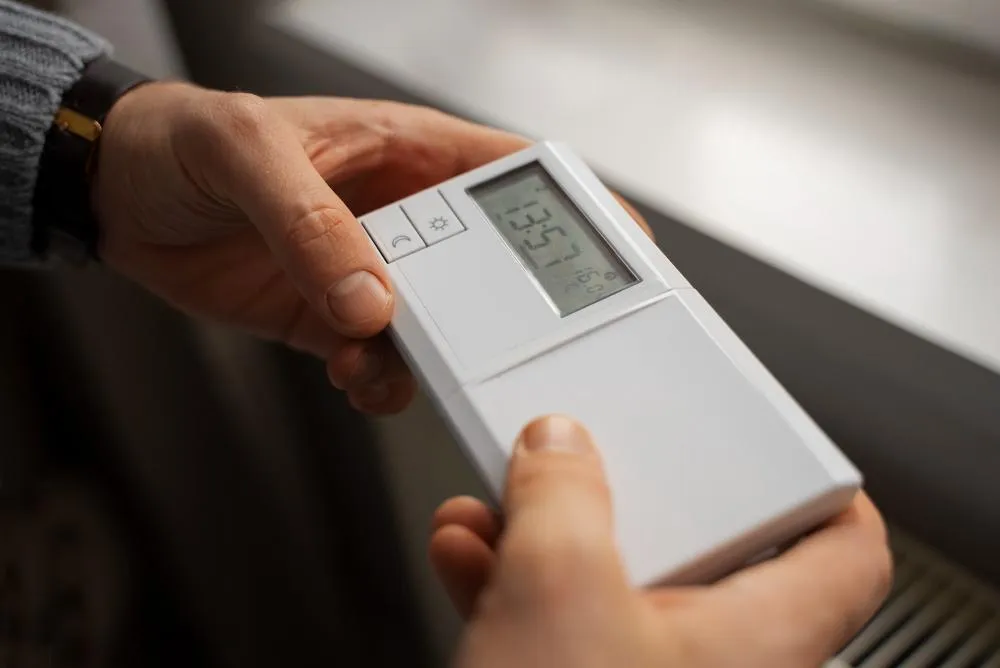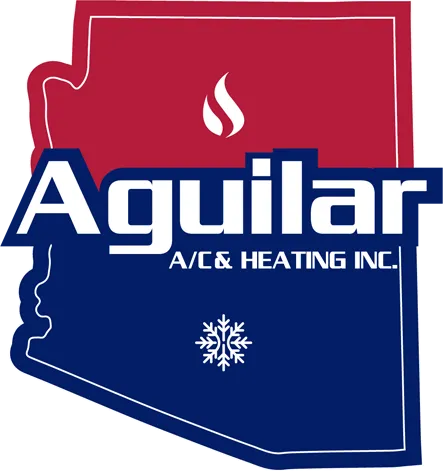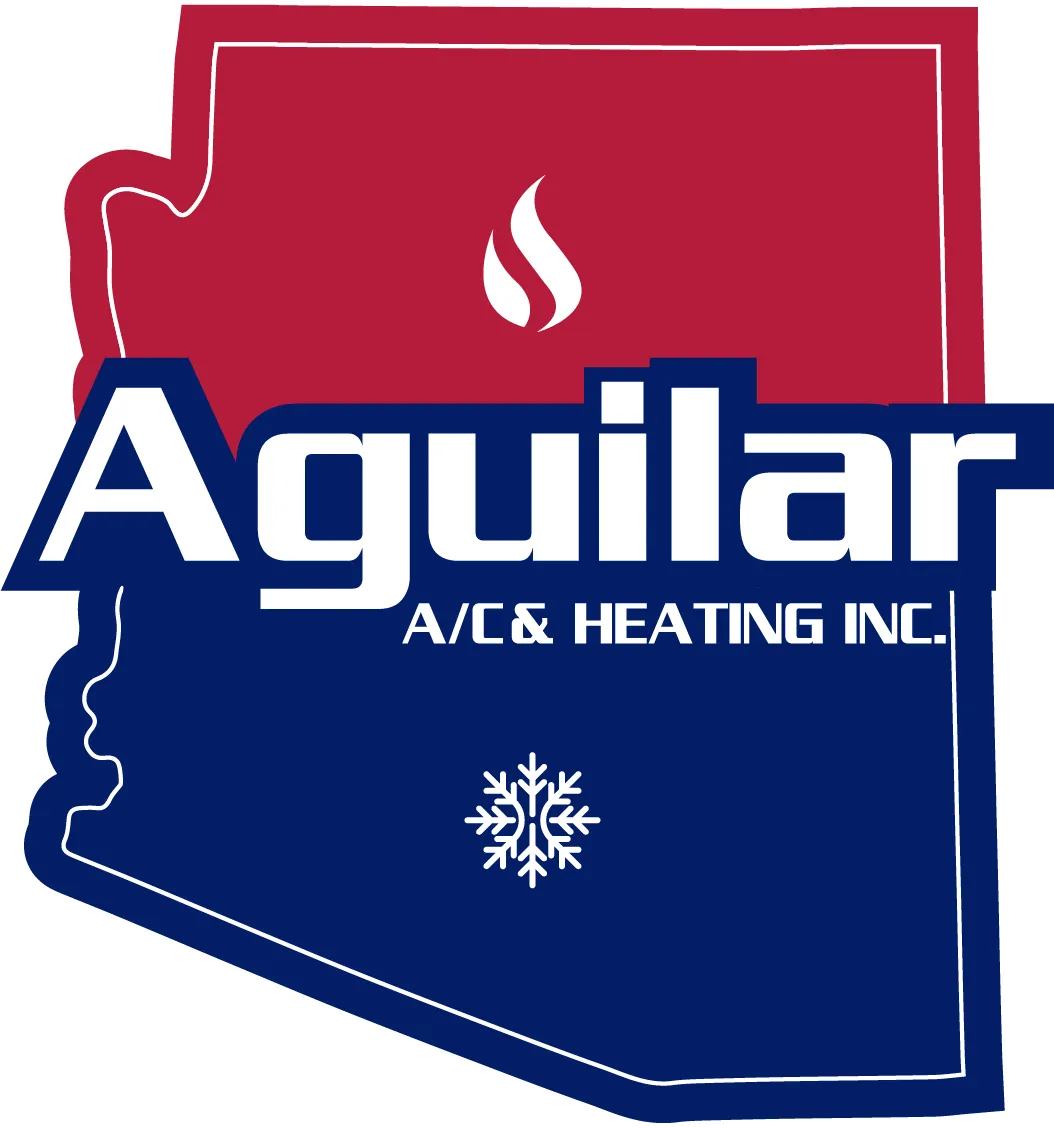Aguilar A/C & Heating
Blog

How Smart Thermostat Installation Saves Energy in Phoenix Homes
In Phoenix’s blistering summers, your air conditioner is often your biggest electricity expense. What if a small smart device could make a noticeable dent in your energy bill and reduce wear on your HVAC system? Smart thermostats do exactly that — they use automation, occupancy sensing, learning algorithms, and remote control to optimize when and how your system runs.
In this blog, we’ll explain how smart thermostats work, why they’re so beneficial in desert climates like Phoenix, walk you through the steps to choose and install one properly, and answer the most common questions homeowners have about them.
What Is a Smart Thermostat — and Why It Matters
A smart thermostat is a Wi-Fi connected thermostat that goes beyond manual or programmable settings. It can:
Learn your habits and preferences, adjusting the schedule automatically
Detect occupancy (or absence) and shift settings accordingly
Be controlled remotely from a phone or app
Integrate with home automation systems or energy programs
Offer energy usage reports and alerts
Because it reduces the potential for human error and runs smarter control logic, a smart thermostat can produce more consistent savings than a traditional programmable one.
In Phoenix, where air conditioning runs almost year-round, these advantages become especially meaningful: less wasted cooling, smarter timing around peak hours, and better matching of system runtime to actual need.
Why Smart Thermostats Are Especially Effective in Phoenix
Here’s why a smart thermostat is more than a convenience — it’s a high-ROI upgrade in a place like Phoenix:
Long Cooling Seasons
With cooling needed for many months, the savings opportunity compounds.Peak Demand & Time-of-Use Rates
Utilities in Arizona incentivize lower demand during peak hours. Smart thermostats can shift load or pre-cool to avoid expensive peak usage. For example, SRP’s program is exploring how smart thermostats help customers reduce energy use during high-demand times.Automated Efficiency
The thermostat adapts to your patterns without you manually reprogramming it — avoiding common errors that reduce efficiency in standard programmable thermostats.Rebates & Incentives
Local utilities such as APS and SRP offer rebates or credits when you install qualifying smart thermostats.Comfort and Consistency
Smarter scheduling and better control can lead to fewer temperature swings, better humidity management, and more consistent comfort indoors.Energy Savings
Studies and manufacturers suggest that energy savings of around 5% to 10% (or more) are often achievable by combining smart thermostat use with proper system efficiency.
How to Choose and Install a Smart Thermostat — Step by Step
Below is a guide you or your contractor can follow:
Check Compatibility
Ensure your HVAC system (voltage, wiring, control requirements) works with your chosen smart thermostat model.Select the Features You Need
Look for geofencing, learning algorithms, occupancy sensors, scheduling flexibility, remote access, and integration with energy programs.Obtain Any Utility Incentives
Before purchasing, verify whether your utility offers a rebate or credit for smart thermostat installation.Professional Installation
While many homeowners can do the wiring, hiring an HVAC professional ensures correct configuration, calibration, and system integration.Set Up the App and Preferences
After installation, link the thermostat to your Wi-Fi, set your baseline preferences, and allow the device to learn your routines.Optimize Over Time
Monitor usage reports, tweak schedules, and respond to alerts the thermostat provides.Enroll in Demand / Peak Programs (if offered)
Many smart thermostats can participate in energy utility programs that reward you for reduced usage during peak load times.
FAQs
How much energy can I save with a smart thermostat in Phoenix?
Typical savings are 5–10% annually on cooling and heating costs when used properly.Will a smart thermostat work with my current HVAC system?
In most cases yes — but you must verify wiring compatibility and functionality (some systems require extra modules or adapters).Do rebates really matter?
Absolutely. Rebates from local utilities can reduce your upfront cost substantially.Is it better to install it myself or hire a technician?
DIY is possible if you're comfortable with wiring and system logic, but professional installation ensures optimal performance and compatibility.How long will it take to “pay for itself”?
Depending on usage, electricity rates, and the rebate, many homeowners see payback in 1 to 3 years.
Conclusion
Smart thermostat installation is one of the most cost-effective upgrades you can make in a Phoenix home. With automated control, responsive scheduling, and integration with utility programs, it helps reduce waste, lower bills, and extend HVAC lifespan.
If you're ready to upgrade, reach out to a qualified HVAC contractor in Phoenix. Let them help you choose the right model, install it properly, and ensure your home is running at peak efficiency this summer.
Our Services
Helpful Links
Contact Information
Phoenix, AZ 85042
Business Hours
Mon - Fri: 8:00 am - 4:30 pm
Sat & Sun: Closed
© 2025 All Rights Reserved | Aguilar A/C & Heating

